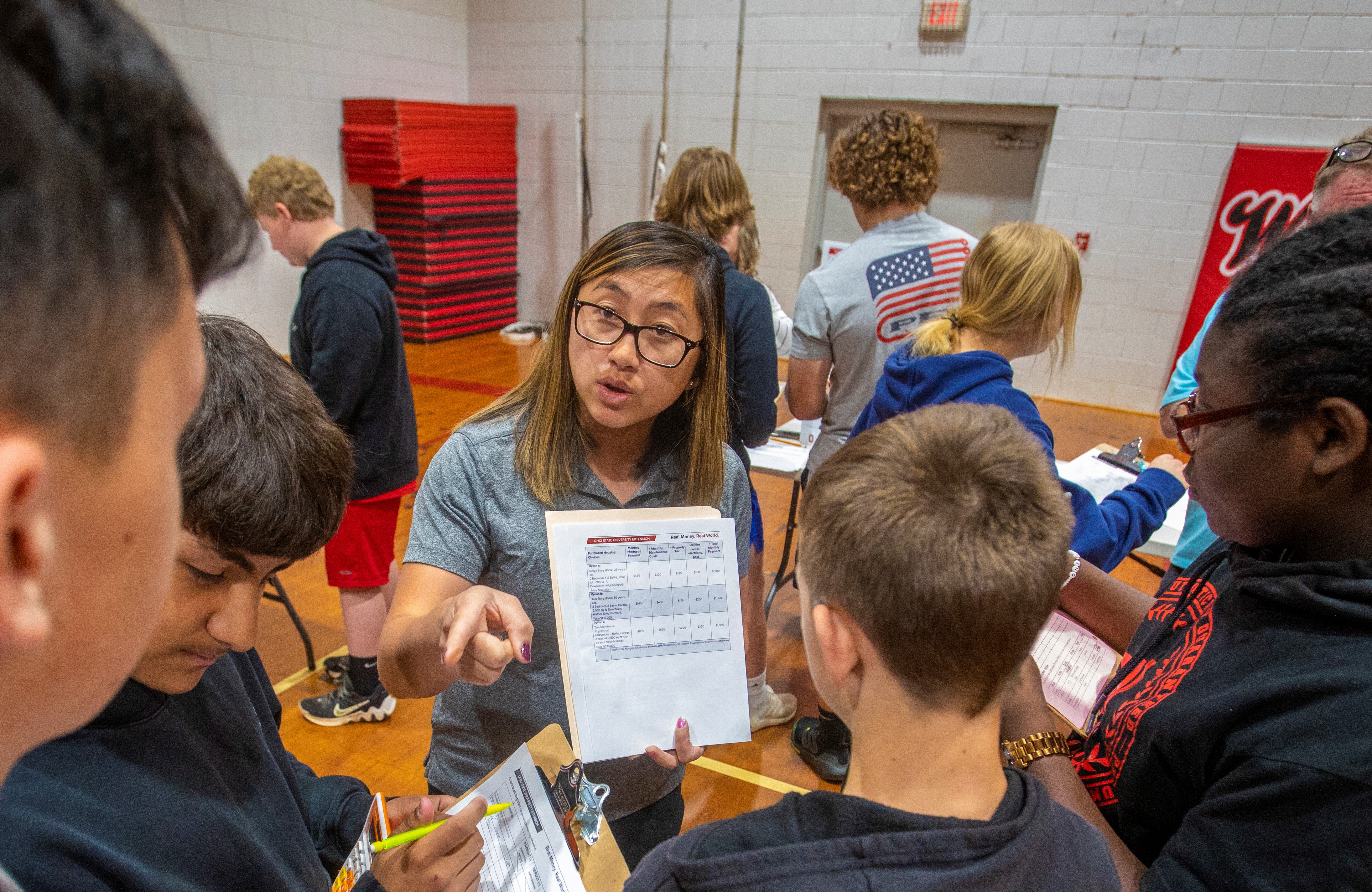Real Money. Real World. Held in Alexander County Schools
go.ncsu.edu/readext?934731
en Español / em Português
El inglés es el idioma de control de esta página. En la medida en que haya algún conflicto entre la traducción al inglés y la traducción, el inglés prevalece.
Al hacer clic en el enlace de traducción se activa un servicio de traducción gratuito para convertir la página al español. Al igual que con cualquier traducción por Internet, la conversión no es sensible al contexto y puede que no traduzca el texto en su significado original. NC State Extension no garantiza la exactitud del texto traducido. Por favor, tenga en cuenta que algunas aplicaciones y/o servicios pueden no funcionar como se espera cuando se traducen.
Português
Inglês é o idioma de controle desta página. Na medida que haja algum conflito entre o texto original em Inglês e a tradução, o Inglês prevalece.
Ao clicar no link de tradução, um serviço gratuito de tradução será ativado para converter a página para o Português. Como em qualquer tradução pela internet, a conversão não é sensivel ao contexto e pode não ocorrer a tradução para o significado orginal. O serviço de Extensão da Carolina do Norte (NC State Extension) não garante a exatidão do texto traduzido. Por favor, observe que algumas funções ou serviços podem não funcionar como esperado após a tradução.
English
English is the controlling language of this page. To the extent there is any conflict between the English text and the translation, English controls.
Clicking on the translation link activates a free translation service to convert the page to Spanish. As with any Internet translation, the conversion is not context-sensitive and may not translate the text to its original meaning. NC State Extension does not guarantee the accuracy of the translated text. Please note that some applications and/or services may not function as expected when translated.
Collapse ▲Teaching youth about financial management is becoming increasingly important especially since this generation is predicted to face higher levels of debt than their parents. Unfortunately, many of this age group have yet to receive financial guidance. A study from the Organization for Economic Co-Operation and Development in 2015 showed that of the 15-year-olds surveyed in the United States, 18% of respondents did not learn financial skills that are often applied to everyday situations, such as building a simple budget, comparison shopping, and understanding an invoice. According to the very same study from the Organization for Economic Co-Operation and Development in 2015, there is a clear gap in financial literacy scores based on the percentage of students in a given school who receive free and reduced-price lunch and that those who receive free and reduced-price lunches tend to have lower financial literacy scores.
One of the biggest surprises to participants was the cost of child care. One youth, who came into the simulation with only an $1800 monthly salary and two children, was discouraged to discover at the child care booth that daycare for his two children would be over $880. Volunteers at the Financial Assistance booth assisted him in getting a second part-time job after he discovered that “giving his children back” was not an option. Many had a newfound respect for their parents and what they deal with on a daily basis. At the end of the experience, student comments included, “Kids are expensive,” “I need to stay in school and graduate in order to get a better job later,” “Life is a whole lot harder than I thought,” and “I need to get the important stuff out of the way first.”
Special thanks to all the community partners involved, and to the sponsors who helped bring this needed program to the middle school students in Alexander County.
If you would like more information about Real Money. Real World. program, please contact Der Holcomb at the N.C. Cooperative Extension, Alexander County Center at 828-632-3125 or dxiong3@ncsu.edu.





